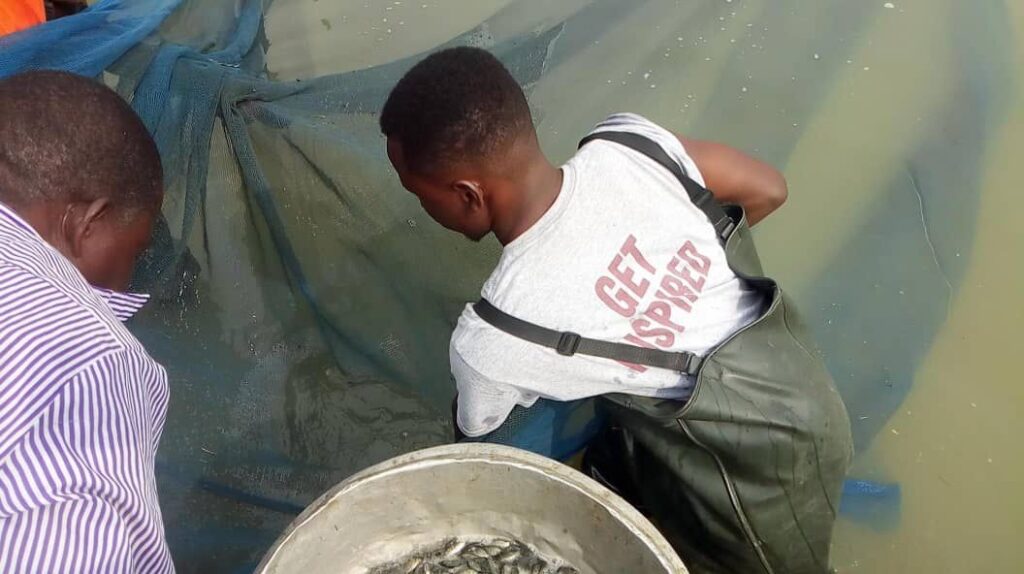
News & Views
Nutrition & Feed products
High fish feed prices force Ghanaian fish farmers to close business
March 16, 2023 By Bob Atwiine
 (Photo: David Appah)
(Photo: David Appah) Fish farmers in Ghana have been forced to close business due to skyrocketing cost of fish feeds on the market.
According to fish farmers, the cost of fish feed has gone up by about 200 per cent across the country which has rendered the business profitless.
David Appah, director in one of the companies dealing in fish farming and aquaculture extension services in the Greater Accra region, told Hatchery International that there has been rapid increase in the price of feed where a bag of 15kg feed was sold at 90-100 Ghanaian Cedis (US$7.23 -8.03) in 2020, but currently the same bag is now sold at 300-500 Cedis (US$24.10-40.16) in 2023.
Appah says that many fish farms are closing down as a result of the high cost of production. This is equally leading to job losses in the aquaculture industry.
“The rapid increase in price has affected many small scale farmers and even bigger farms. Most farms have paused or stopped production. Also the price of fish keeps falling even though the cost of production is high making most farms unable to profit. Sometimes the best option is to break,” says Mr Appah.
Again, the rising cost of ingredients such as maize and soya beans have resulted in the sector relying heavily on imports to produce feed for their fishes.
“Most of these feed producers are foreigners. For them, they want to make 100 per cent profit. Some of us can equally produce good feed like them but we lack the resources and the raw materials are also expensive,” he adds.
He blames government for failure to intervene and arrest the situation adding that that it only targets on getting a percentage from the big companies producing feed and neglecting local fish farmers.
“Our farm has been on a break for some time now. We are trying to restructure the whole production system to meet our profit margin, currently we are just training and assisting farmers who will want to venture into fish farming. From production to marketing,” he says.
He wants the government of Ghana to intervene and regulate the prices of feed and if possible subsidise it for local fish farmers.
Asked on the state of the aquaculture industry in the West African country, Appah noted that the government line ministry is unable to provide a detailed description of the situation it because of lack of national data about the industry.
To arrest the situation, the Chamber of Aquaculture Ghana a professional and non-profit organization was recently lunched and has been trying to collect national data of all aquaculture industry stake holders.
The organization also calls on the government to consider tax waivers and research to enable players in the sector to discover new ingredients for fish feed production, among others.
Print this page
Advertisement
- Jamaican RAS project to be country’s answer to food shortage
- Inside BioMar’s algal oil facility in Australia





